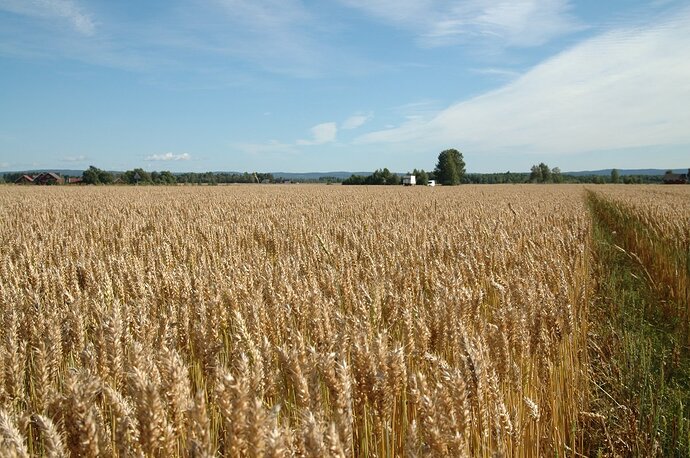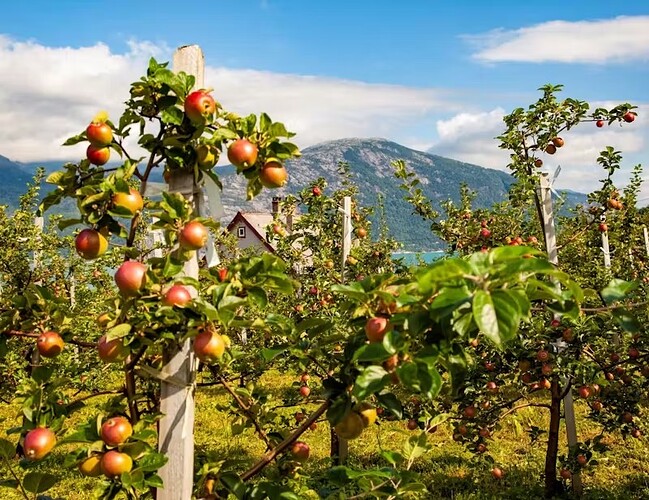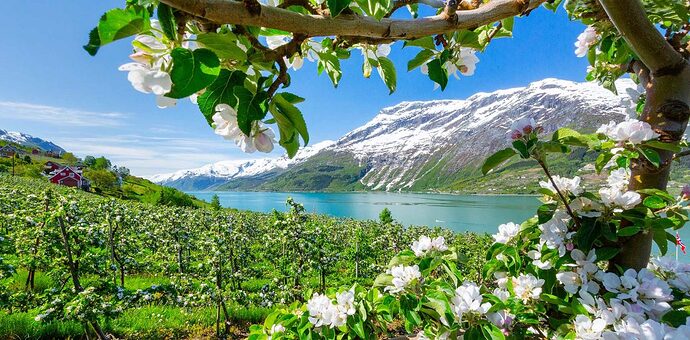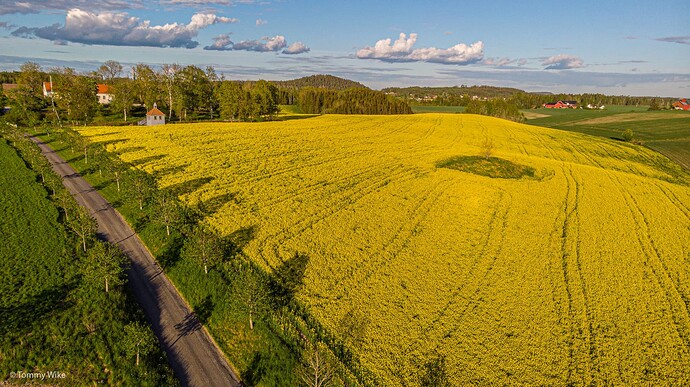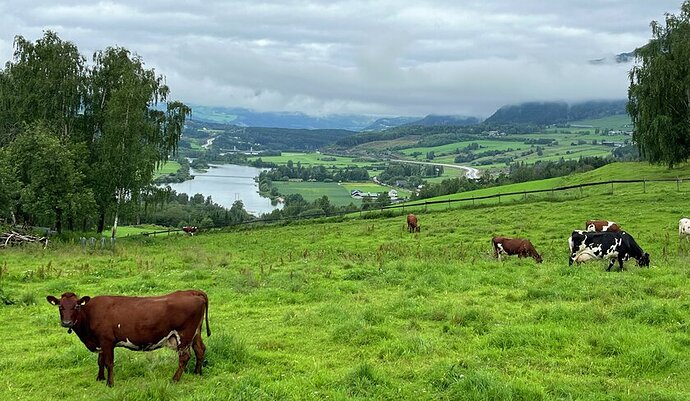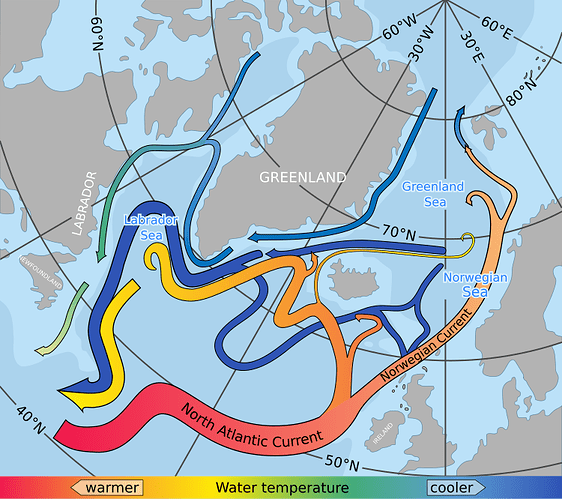I’m a bit late to this thread, but I would have thought this is self evident. Like Switzerland or Luxembourg, if everyone in society is wealthy, obviously prices are high.
Now, I’m not saying everyone in Norway is wealthy; I’m certainly not, and neither are many others I see, mostly immigrants. But in general, wages are high here, and there’s a high standard of living, so it shouldn’t be surprising that prices are high accordingly.
That holds true for arctic northern Norway, but not for anywhere south of Trøndelag. This is a normal country with normal agriculture.
All of these are taken in Norway
To be fair, we have the same dichotomy in the States: lots of arable land, just not in our most northern state.
But your abundant agriculture would suggest lower food costs, except for imported foods. Yes, housing costs, clothing, cultural activities — all those would be more expensive in an affluent society — but basic food?
Prices in general are higher, so why not food? I don’t think prices are determined by how much it costs to import them (thus making local produce cheap by definition) but rather by what the market will bear. My post was mostly meant to push back against the image of Norway as an arctic wasteland dependent on import for everything.
That’s interesting, because in the States, produce is generally cheaper and fresher when it’s local, no matter what other costs are.
I’m not sure that generally holds true in Europe, tbh. Often, the local produce is more expensive because people will buy it out of local patriotism or a feeling that it is fresher or better. Imports from the Netherlands and Spain (who supply almost all of Europe’s greenhouse vegetables) are generally cheaper.
It’s a bit more nuanced in Norway, which has high tariffs on agricultural products to protect its own agricultural sector (unlike EU countries), but even with that, imports are almost always cheaper than local produce.
When I met my wife, who lived in New England, and she told me that they have lots of farms up here, especially dairy farms, I assumed that she meant this was where the polar cows live and ice cream comes from.
If you’re from a temperate region, it is a bit of a surprise that food can actually grow way up north, where it’s winter most of the year.
Now that I live here though, I get it. We have a couple nice tomato plants and a pepper plant growing. That we should be able to harvest before they’re buried under 3 feet of snow.
cross-posting
I remember that - and the Malta files.
Most of the Australian population lives relatively close to the coast, as if you go further inland, everything is hostile. It sounds like a tropey-memey joke, but it is based in reality.
For example, there are approximately 439 rivers in the whole of Australia. In context, there are over 1,500 in the UK, a significantly smaller island.
You want to survive, you live close to water.
You think of it as an ‘island’ too. I was so surprised when I learned that China teaches there are only 6 continents. (I wonder what they think about the newly discovered New Zealand continent?) In the States, we are taught that Australia is its own continent.
I guess it’s like Pluto: when is it a planet, or dwarf planet, or something else?
I mean, I was taught there are only six continents in school, but that’s because North and South America are clearly only one continent. I don’t know whether China does the same but it just makes sense.
But Europe and Asia aren’t? This logic seems inconsistent.
It is!
It is because what constitutes a continent is based less on any sort of meaningful geography and more due to culture/political considerations. There is literally zero reason to consider Europe a seperate continent from Africa and Asia, other than because of Euro-centric supremacy. I’ve taken to calling it Afro-Eur-Asia in my classes when I teach the first section of US history, because those three places have had ongoing interactions for centuries now (hence shared immunity to particular diseases and centuries of trading).

